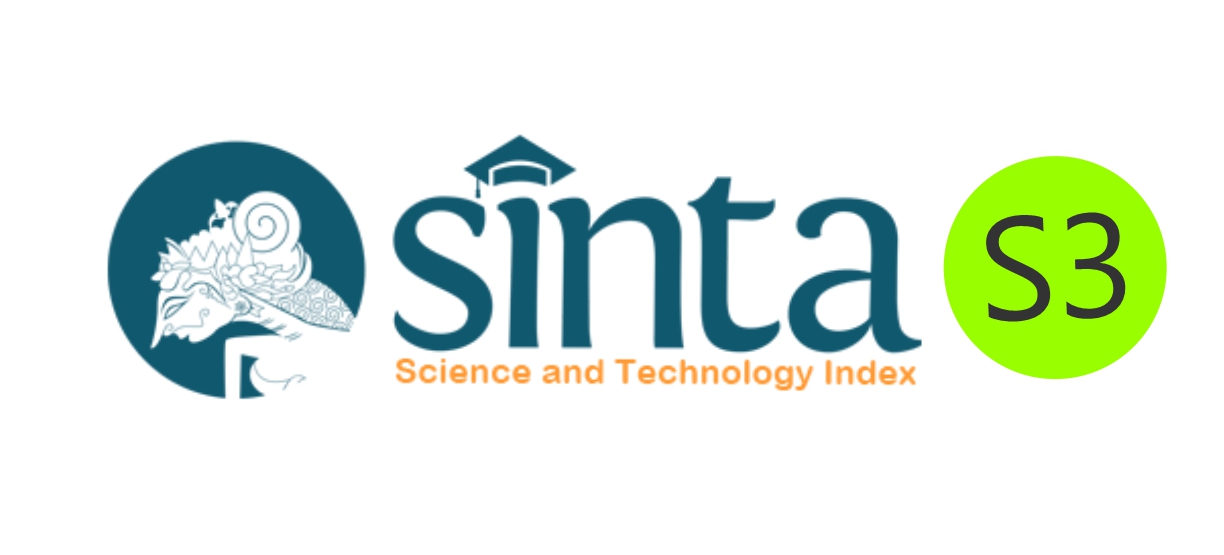Artificial Intelligence Sebagai Subjek Hukum: Tinjauan Konseptual dan Tantangan Pengaturan di Indonesia
Downloads
Abstract
Artificial Intelligence (AI) is an invention that is changing the face of the world. The emergence of machines with AI certainly has a disruptive effect on various social structures of society. Conceptually, the more intelligent a system is, the more likely it is that the system will take actions that have legal consequences. So, if this smart system can act and think like humans, does that mean the system must also have legal rights and protections like humans? Therefore, to meet the legal need for regulation of AI, it is necessary to have a deep understanding of how the concept of AI is a legal subject and the challenges in regulation that must be answered if AI is recognized as a legal subject in Indonesia. The research method used in this paper is descriptive analysis. This method uses literature research on the rules of law and legislation in force, and the data collected is analyzed descriptively. It is supported by using a statute approach and a conceptual approach to get complete results. The conclusion put forward in this paper is that several concepts allow AI to be considered a legal subject, in particular, the theory of legal entities and organ theory, which essentially states that the law can recognize legal subjects other than humans naturally (naturalijk person). Then, several challenges were found in the effort to regulate it, namely related to criminal liability and copyright.
Keywords: Conceptual Review; Artificial Intelligence; Legal Subject.
Abstrak
Artificial Intelligence (AI) merupakan penemuan yang mengubah wajah dunia. Munculnya mesin dengan AI tentu menimbulkan efek disruptif terhadap berbagai tatanan sosial masyarakat. Secara konseptual, semakin cerdas suatu sistem, maka semakin besar kemungkinan sistem tersebut untuk melakukan tindakan yang menimbulkan akibat hukum. Maka, apabila sistem cerdas ini memiliki kapasitas bertindak dan berpikir sebagaimana manusia, apakah itu berarti sistem juga harus memiliki hak dan perlindungan hukum selayaknya manusia. Oleh karena itu, dalam rangka memenuhi kebutuhan hukum akan pengaturan tentang AI, maka diperlukan suatu pemahaman yang mendalam tentang bagaimana konsep AI sebagai subjek hukum dan tantangan dalam pengaturan yang harus dijawab apabila AI diakui sebagai subjek hukum di Indonesia. Metode penelitian yang digunakan dalam makalah ini adalah deskriptif analisis. Metode ini menggunakan penelitian kepustakaan terkait dengan kaidah-kaidah hukum dan peraturan perundang-undangan yang berlaku serta data yang terkumpul dianalisa secara deskriptif. Untuk mendapatkan hasil yang komprehensif, maka ditunjang dengan menggunakan pendekatan pendekatan statute approach dan conceptual approach. Kesimpulan yang dikemukakan dalam makalah ini adalah terdapat beberapa konsep yang memungkinkan AI dianggap sebagai subjek hukum, khususnya adalah teori badan hukum dan teori organ, yang intinya menyatakan bahwa hukum dapat mengakui subjek hukum selain manusia secara natural (naturalijk person). Kemudian, dalam upaya pengaturannya ditemukan beberapa tantangan, yaitu terkait pertanggungjawaban pidana dan hak cipta.
Kata Kunci: Tinjauan Konseptual; Artificial Intelligence; Subjek Hukum.
Buku
A P Simester and Andreas von Hirsch, ‘Crimes, Harms, and Wrongs: On the Principles of Criminalization, (Hart Publishing 2014).
David Feil-Seifer and Maja J, Mataria, Human-Robot Interaction, Encyclopedia of Complexity and System Science (2009).
Erica Palmerini, Interplay Antara Hukum Dan Teknologi, Atau RoboLaw Dalam Hukum Dan Teknologi. Tantangan Mengatur Perkembangan Teknologi (Pisa University Press 2012).
George P Fletcher, Basic Concepts of Criminal Law (Oxford University Press 1998).
HL Hart, ‘Definition and Theory in Jurisprudence' (LQR 1954).
N. Bostrom., Superintelligence (Oxford University Press).
R.A. Brooks, Robot: The Future of Flesh and Machines 194-95 (Penguin Press London 2002).
Subekti, Pokok-Pokok Hukum Perdata, (2003).
Jurnal
D.A. Boehm-Davis, A. Marcus, et al, ‘"The next Revolution: Vehicle User-Interfaces and the Global Rider/Driver Experience”' [2003] The ACM CHI Conference on Human Factors in Computing Systems.
Delvaux M, ‘European Parliament Committee on Legal Affairs Report with Recommendations to the Commission on Civil Law Rules on Robotic' ((INL), 2016) http://www.europarl.europa.eu/sides/getDoc.do?pubRef=-//EP//NONSGML+COMPARL+PE-582.443+01+DOC+PDF+V0//EN&language=EN, > accessed 14 Agustus 2022.
Hayes, ‘Artificial Intelligence: The Future's Getting Closer' [1988] The International Journal of Technology Law and Practice.
Hitoshi Mitomo, ‘Telecommunications Policies of Japan' (2020) 1 Advances in Information and Communication Research.
J. Harris, ‘Human Beings, Persons and Conjoined Twins: An Ethical Analysis of the Judgment in Re A', (2001) 9 Medical L Rev.
Joel Tito, et. all., ‘"Destination Unknown: Exploring the Impact of Artificial Intelligence on Government”' [2017] Artificial Intelligence and Future of Government, the Centre for Public Impact (CPI).
Megan Smith et. all., ‘” Preparing for The Future of Artificial Intelligence”,' [2017] National Science and Technology Council (NSTC) Committee on Technology Executive Office of the President of United States.
Mikhail Batin dan Alexey Turchin, ‘"Kecerdasan Buatan Dalam Perpanjangan Kehidupan: Dari Pembelajaran Mendalam Ke Superintelligence,”' (2017) 41 Journal Informatica.
Naoko Abe, ‘Cross-Cultural (France and Japan) and Multidisclinary Discussion on Artifical Intelligence and Robotics' [2018] CEAFJP.
Stuart Russell and Peter Norvig, ‘Artificial Intelligence: A Modern Approach (3rd Edition)', [2009] Essex, England: Pearson.
Yueh-Hsuan Weng et al, ‘Toward the Human-Robot Co-Existence Society: On Safety Intelligent for Next Generation Robots, Springer Science' (2009) I International Journal Social Robot 267.
Laman
Insights MTR, ‘"Self-Driving Cars Take the Wheel”,' (MIT Technology Review,) <https://www.technologyreview.com/s/612754/self-driving-cars-take-the-wheel/> accessed pada 1 Agustus 2022.
John McCarthy, ‘Der Vater Der Rechner-Cloud Ist Tot', <http://www.spiegel.de/netzwelt/web/john-mccarthy-der-vater-der-rechner-cloud-ist-tot-a-793795.html,> accessed 14 Agustus 2022.
Kseniya Charova, Cameron Schaeffer, Lucas Garron, ‘"Robotic Nurses”,' (2011) http://cs.stanford.edu/people/eroberts/cs181/projects/2010-11/ComputersMakingDecisions/robotic nurses/index.html, accessed 14 Agustus 2022.
Martin Wainwright, ‘"Robot Fails to Find a Place in the Sun”,' (The Guardian, 2002) <http://www.theguardian.com/uk/2002/jun/20/engineering.highereducation>, accessed 14 Agustus 2022.
‘Peluang Untuk Perusahaan Swiss AI Di Jepang' (Swiss Business Hub Jepang, 2019) < https://www.s-ge.com/sites/default/files/publication/free-form/s-ge-artificial-intelligencereport -japan.pdf> accessed 14 Agustus 2022.
The Guardian, ‘"Self-Driving Uber Kills Arizona Woman in First Fatal Crash Involving Pedestrian” <https://www.theguardian.com/technology/2018/mar/19/uber-self-driving-car-kills-woman-arizona-tempe, accessed 14 Agustus 2022.
Copyright (c) 2022 Eka Nanda Ravizki, Lintang Yudhantaka

This work is licensed under a Creative Commons Attribution 4.0 International License.


















